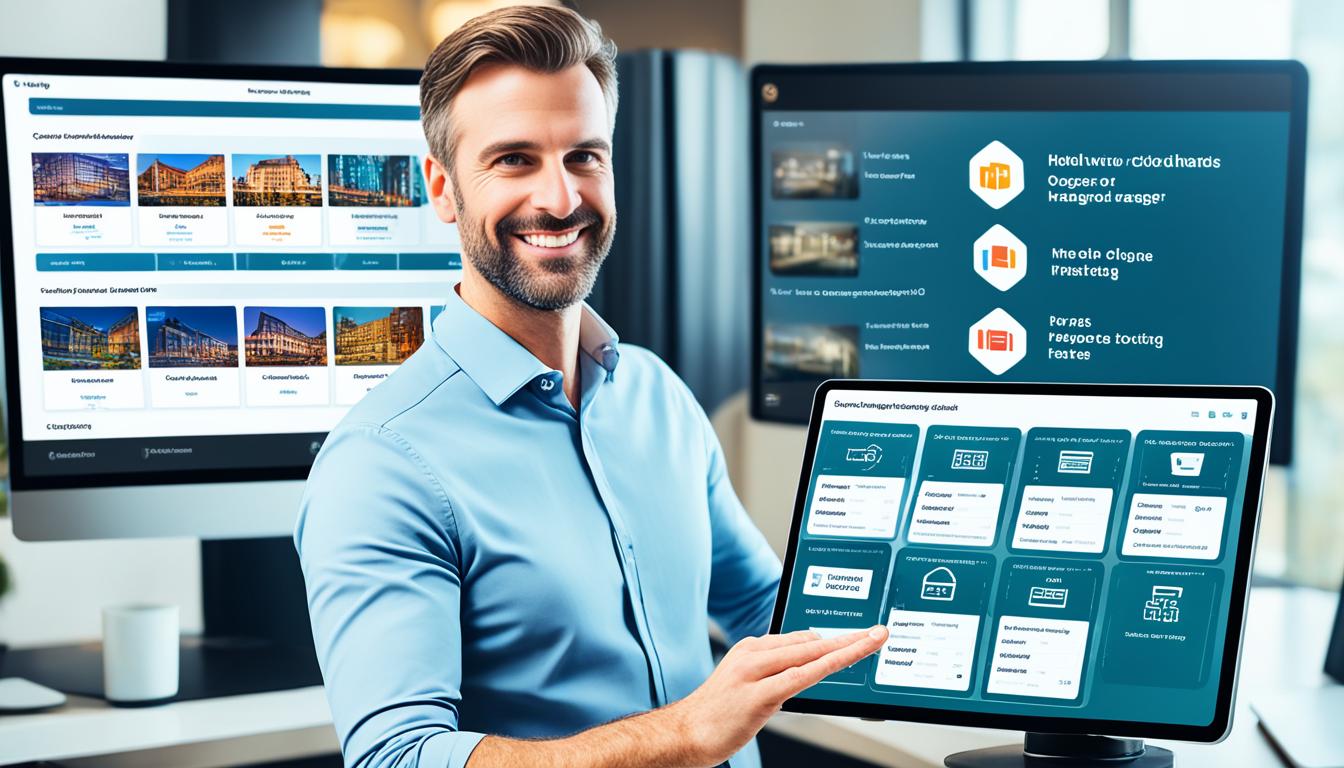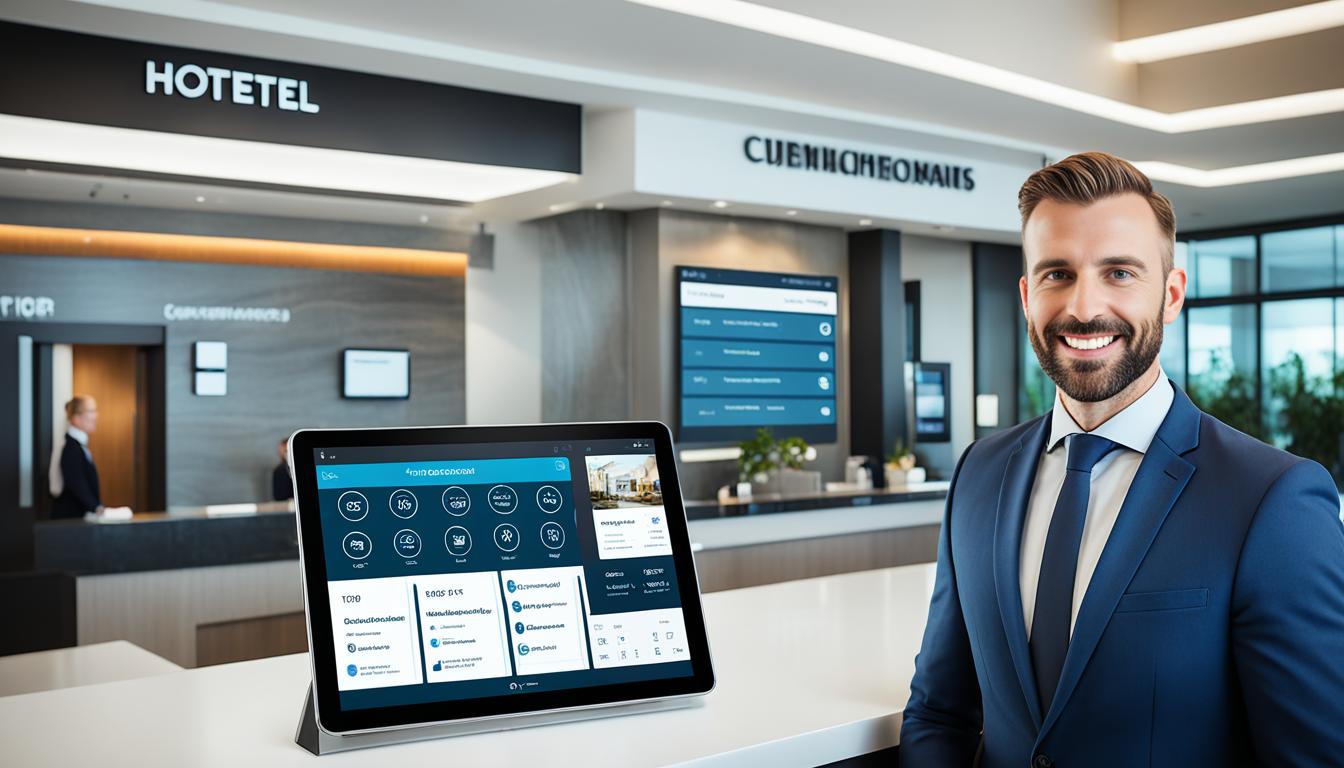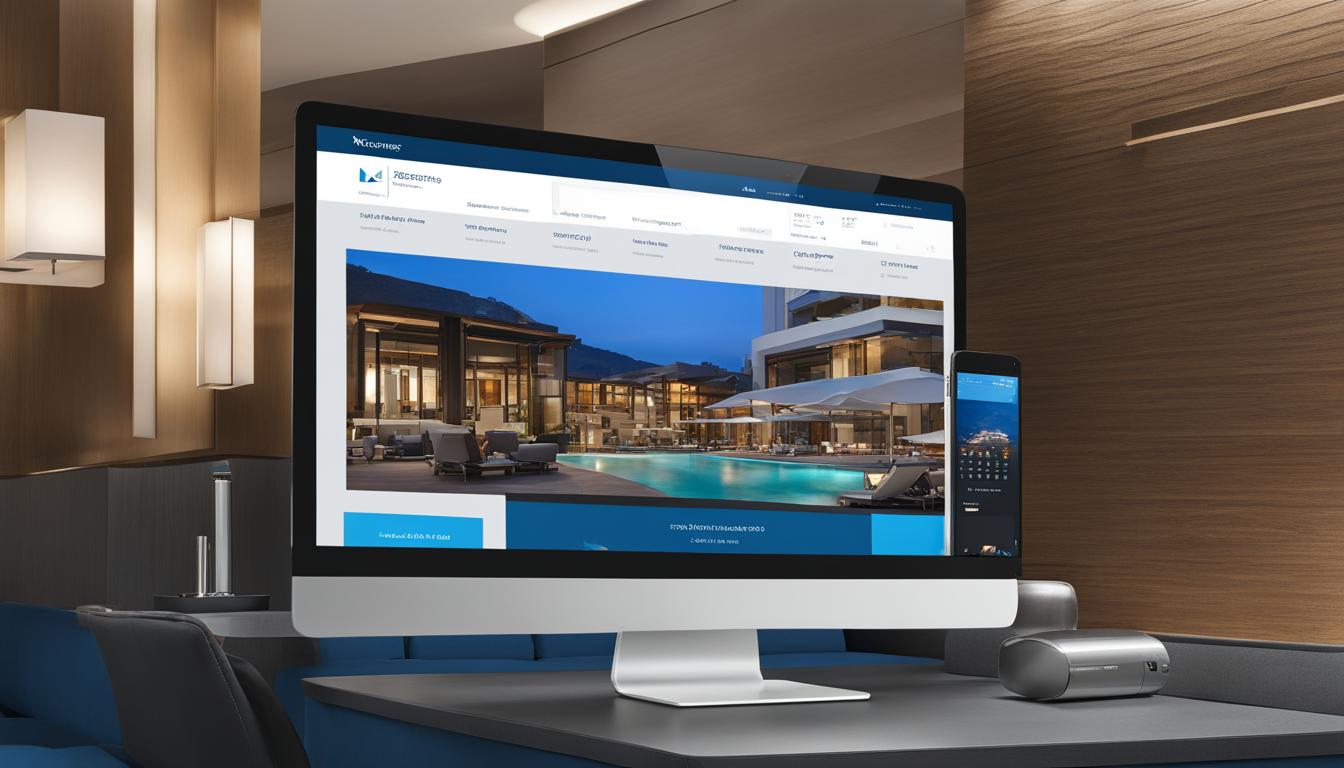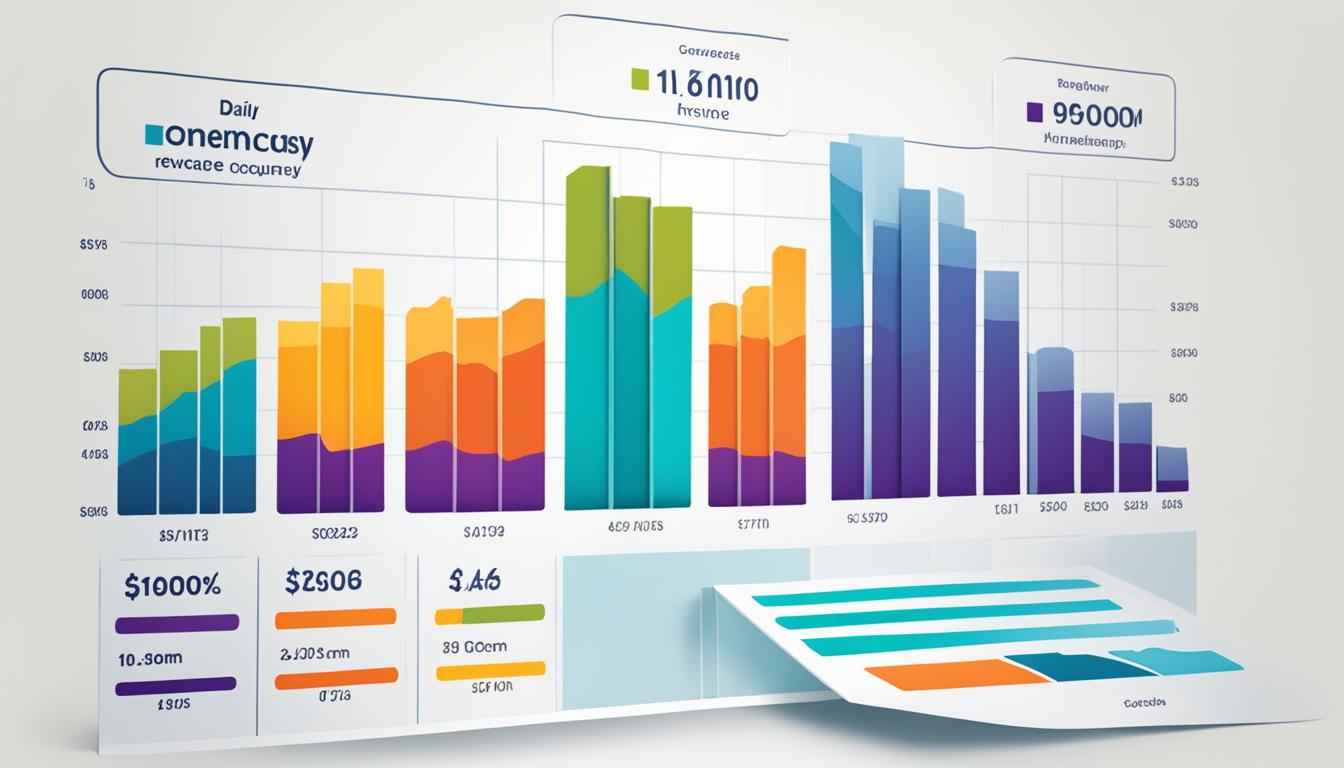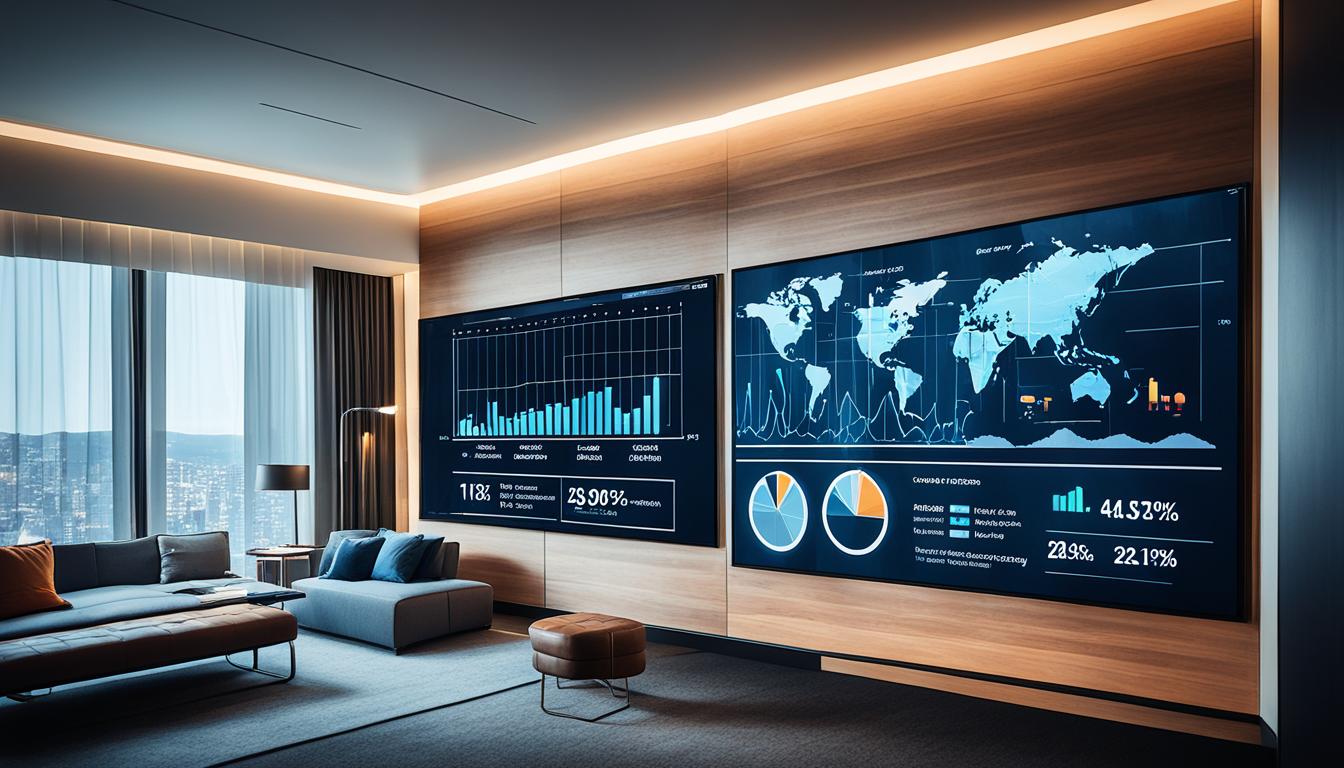Are you struggling to maximize your hotel bookings and improve your distribution strategy? Discover how a hotel channel manager can revolutionize your hotel operations and drive success.
Understanding the Role of Hotel Channel Managers
Hotel channel managers play a crucial role in hotel distribution by connecting hotels to various online distribution channels, such as OTAs.
What Is a Hotel Channel Manager?
A hotel channel manager is a software platform that enables hotels to manage their inventory, rates, and availability across multiple channels from a single interface. It eliminates the manual and time-consuming task of updating rates and availability individually on each channel.
Benefits of Using a Channel Manager for Your Hotel
Using a channel manager offers several benefits for hotels, including increased efficiency, improved revenue management, expanded market reach, and the ability to drive direct bookings. With a channel manager, hotels can automate and streamline their distribution processes, ensuring accurate and real-time updates across all channels.
How Channel Managers Integrate with Online Travel Agents
Channel managers integrate with OTAs through APIs (Application Programming Interfaces) or two-way connections. This allows seamless transmission of data between the hotel’s property management system and the OTA platforms, ensuring smooth and efficient distribution processes.
The Impact of Planethms Channel Manager on Hotel Distribution
Planethms channel manager is a comprehensive hotel distribution solution that can greatly impact a hotel’s distribution strategy. With its cloud-based hospitality system, Planethms offers a suite of modules for reservation management, operational efficiency, revenue management, distribution, banquet event management, guest acquisition, and guest engagement.
Planethms channel manager provides hotels with seamless integration with various online booking platforms, allowing them to effectively manage their inventory and rates across multiple channels. By using Planethms channel manager, hotels can automate their distribution processes, enabling real-time updates, and maximizing their online visibility. This solution not only streamlines hotel operations but also helps hotels to reach a wider audience and increase bookings through integrated tools and global distribution networks.
Key Features of an Effective Hotel Channel Manager
An effective hotel channel manager should possess certain key features that enhance a hotel’s distribution capabilities. These features include:
Real-Time Inventory Management
Real-time inventory management is a crucial feature that allows hotels to manage their available rooms in real-time across all distribution channels. This ensures accurate availability and minimizes the risk of overbooking or underbooking. With real-time inventory management, hoteliers can easily update and synchronize their room availability across various online booking platforms, ensuring that potential guests can see accurate information about room availability and make reservations accordingly.
Seamless Integration with Online Booking Platforms
Seamless integration with online booking platforms is another essential feature of an effective hotel channel manager. This feature enables hotels to effortlessly connect with various OTAs and online booking platforms, eliminating the need for manual data entry or updates. By integrating with these platforms, hotels can streamline their distribution processes and ensure that their inventory, rates, and availability are accurately reflected on all online channels. Seamless integration allows for real-time updates and helps hoteliers avoid the inconvenience of managing multiple systems separately.
Automated Rate Optimization and Management
Automated rate optimization and management is a valuable feature that empowers hotels to dynamically adjust their rates based on market demand and competitor pricing. By leveraging automated tools and algorithms, hotels can analyze market trends, competitor pricing, and other factors to optimize their rates in real-time. This feature enables hoteliers to maximize revenue opportunities by setting competitive rates that attract potential guests while still ensuring profitability. Automated rate optimization saves time and effort by eliminating the need for manual rate adjustments and allows hotels to stay competitive in the ever-changing market.
Maximizing Revenue with Channel Manager Solutions
Increase Room Revenue with Dynamic Pricing Strategies
One of the key strategies for maximizing revenue with channel manager solutions is implementing dynamic pricing. Dynamic pricing allows hotels to adjust their rates in real-time based on market demand, competitor pricing, and other factors. By continuously optimizing rates, hotels can capture bookings at the most profitable rates, resulting in increased room revenue.
Drive More Direct Bookings with Integrated Tools
Channel manager solutions offer integrated tools that enable hotels to drive more direct bookings. These tools include direct booking engines, website booking widgets, and seamless connectivity with the hotel’s website. By providing a user-friendly and convenient booking experience, hotels can encourage guests to book directly, reducing commission fees from third-party online travel agents (OTAs) and maximizing revenue.
Finding the Right Guests Through Global Distribution
A channel manager solution plays a crucial role in facilitating global distribution. By connecting hotels to multiple distribution channels, including OTAs and global distribution systems (GDS), channel managers allow hotels to reach a wider audience and tap into international markets. This expanded reach helps hotels attract the right guests from different regions around the world, further maximizing revenue potential.
Automating Hotel Operations with Hotel Channel Manager
Hotel channel managers not only optimize hotel distribution but also enable the automation of various hotel operations. By integrating with the property management system and other hotel systems, channel managers automate reservation management, inventory updates, rate management, guest communication, and other operational tasks. This automation streamlines hotel management and improves operational efficiency, allowing hoteliers to focus on guest experience and strategic decision-making.
A hotel channel manager acts as a centralized hub for managing various aspects of hotel operations, reducing manual work and human errors, and ultimately enhancing the overall workflow and productivity.
Streamlining hotel management through automation has become essential for modern hotels. With a hotel channel manager, hotels can automate repetitive tasks and create streamlined processes that save time and resources. By automating reservation management, hotels can easily handle bookings, confirmations, and cancellations without the need for manual intervention.
Inventory updates are also automated, ensuring that the availability of rooms and other services is synchronized across multiple channels in real-time. This eliminates the risk of overbooking or double bookings, enhancing the guest experience and preventing revenue loss.
Rate management is another crucial aspect of hotel operations that can be automated with a channel manager. Hotels can set dynamic pricing rules, adjust rates based on demand and occupancy levels, and implement revenue management strategies to maximize revenue and occupancy.
Guest communication can also be automated through the channel manager, with automated emails, confirmations, and personalized messages sent to guests at different stages of their journey. This not only improves guest satisfaction but also reduces the workload on hotel staff.
In addition to these core operations, a hotel channel manager can integrate with various other systems such as the property management system, online payment gateways, and guest review platforms. This integration streamlines data flow and ensures that information is accurate and up-to-date throughout the hotel’s systems.
Overall, the automation of hotel operations with a channel manager leads to improved efficiency, reduced costs, enhanced guest experience, and increased revenue. Hoteliers can focus on more strategic tasks, such as marketing, guest engagement, and staff training, knowing that their operational processes are running seamlessly behind the scenes.
Evaluating free Channel Manager Options
When it comes to hotel distribution, there are both free and paid channel manager options available. It’s important for hoteliers to evaluate these options carefully to make informed decisions about which one is best for their business. In this section, we will explore the pros and cons of free channel managers and compare them to paid alternatives.
Comparing Free vs. Paid Hotel Channel Managers
Free channel managers offer the advantage of being cost-effective, as they don’t require any upfront investment. They can be a viable solution for independent or smaller hotels with limited distribution requirements. However, it’s important to consider the limitations of free channel managers. They often have fewer features, limited scalability, and may not provide dedicated customer support.
On the other hand, paid channel managers offer more robust features, such as advanced inventory management, rate optimization, and seamless integration with various distribution channels. They also provide dedicated customer support, ensuring that any issues or concerns are addressed promptly. Paid solutions are ideal for hotels with complex distribution needs and larger inventories, as they are designed to handle the demands of such operations.
Limitations and Considerations of Free Channel Management Solutions
Free channel management solutions come with certain limitations that hoteliers should be aware of. These limitations often include:
- Limited functionality: Free channel managers may not offer the same level of functionality as paid solutions. They may lack advanced features such as dynamic pricing, real-time inventory updates, and integration with all major OTAs.
- Limited support: Free channel managers may not provide dedicated support, leaving hoteliers to troubleshoot issues on their own.
- Scalability limitations: Free channel managers may not be able to handle the needs of larger hotel operations or accommodate future growth and expansion.
Considering these limitations, it is important for hoteliers to carefully evaluate their specific needs and budget before choosing a channel manager. While free options can be suitable for smaller hotels with basic distribution requirements, paid solutions offer more comprehensive features and support for hotels with more complex needs.
Channel Manager Tutorial: How to Best Utilize the System
A channel manager tutorial is a valuable resource for hoteliers looking to optimize their system utilization and maximize the benefits of their channel manager. By following best practices and implementing effective strategies, hoteliers can improve operational efficiency, increase bookings, and optimize their distribution efforts. Here are some essential tips and insights to help you make the most of your channel manager:
Setting up the Channel Manager:
- Start by creating an account with your chosen channel manager provider.
- Add your hotel’s information, such as property details, room types, and rates.
- Integrate your channel manager with your property management system, ensuring seamless data synchronization.
Integrating with OTAs and Online Booking Platforms:
- Connect your channel manager with popular online travel agents (OTAs) and online booking platforms.
- Ensure that your inventory, rates, and availability are accurately synchronized across all channels in real-time.
- Utilize APIs or two-way connections to facilitate seamless data transmission between the channel manager and the OTAs.
Managing Inventory and Rates:
- Regularly update your channel manager with the latest room availability and rates.
- Implement real-time inventory management to prevent overbookings or underbookings.
- Utilize the automated rate optimization feature to dynamically adjust rates based on market demand and competitor pricing.
Implementing Dynamic Pricing Strategies:
Emphasize the importance of setting competitive rates based on market conditions, events, and seasonal fluctuations. By leveraging dynamic pricing, you can attract more bookings and maximize revenue potential.
Troubleshooting Common Issues:
- Stay updated with the latest system updates and bug fixes provided by your channel manager provider.
- Familiarize yourself with common troubleshooting techniques for resolving issues related to connectivity, synchronization, or data discrepancies.
- Take advantage of customer support from your channel manager provider to ensure timely assistance and resolution of any technical challenges.
By adhering to these system utilization tips and following best practices, hoteliers can optimize their channel manager usage, streamline operations, and achieve better results in terms of bookings and revenue.
Conclusion
Investing in a robust hotel channel manager is a wise decision that can have a significant impact on efficiency and bookings. By leveraging the right tools and features of a channel manager, hotels can streamline operations, optimize distribution strategies, and maximize revenue opportunities.
A comprehensive channel manager like Planethms offers seamless integration, real-time inventory management, and automated rate optimization, among other key features. These functionalities empower hotels to effectively manage their inventory, rates, and availability, ensuring accurate and up-to-date information across multiple channels.
Additionally, with the support and resources provided by Planethms, hoteliers can access expert assistance and guidance throughout their usage of the channel manager. The availability of prompt support ensures a smooth experience and enables hotels to make the most of the platform’s capabilities.
By harnessing the power of a robust channel manager and taking advantage of the support and resources offered, hoteliers can boost efficiency, improve hotel distribution, and drive success for their properties. Inquiries can be directed to [email protected].

